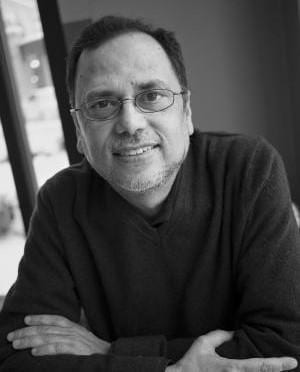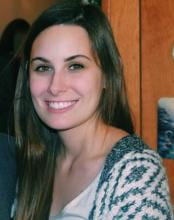Doan: Congratulations on your new book, The Climate of History in a Planetary Age. Can you give us a brief summary of what the book is about?
Chakrabarty: Briefly, it is about how human-induced global warming signals a profound change in what Hannah Arendt once called the human condition. When scientists tell us that humans with their numbers, technology, the animals they keep or farm, act as a geophysical force changing the climate-system of the planet as a whole, or when they say that our impact on species extinction is similar to that of an asteroid strike, it becomes difficult to maintain a hard and fast distinction – as humanists have long done – between human and natural histories. My book explores the implications of that observation for historical and political thought.
Doan: For much of your academic career, you have focused on addressing the meaning of climate change. How did this topic become an integral part of your research? You’ve also argued that “climate change upends long-standing ideas of history, modernity, and globalization.” Can you explain to the COSAS community what you mean by this?
Chakrabarty: No, for most of my career I was focused on subaltern studies, studies of social subordinate groups or classes, and their histories. I have also been interested in understanding how European intellectual traditions were received and transformed in colonial India. I got interested in climate change through my academic and affective involvement with Australia, the country where I did my Ph.D. and where I lived for twenty years before coming to Chicago. Trying to understand a devastating wildfire that broke out in the city of Canberra and its environs in 2003 – a city I came to love during my doctoral years – got me into the topic of climate change.
Climate change makes us realize the ironically important role that cheap and plentiful energy extracted from fossil fuels played in facilitating the end of forced labor in human history and in giving practical shape to many of our modern ideas of freedom. In moving towards a more sustainable world, we need to reconfigure these ideas. It is in that sense that I say that climate change makes us rethink the histories of modernity and the global world.
“Climate change makes us realize the ironically important role that cheap and plentiful energy extracted from fossil fuels played in facilitating the end of forced labor in human history and in giving practical shape to many of our modern ideas of freedom. In moving towards a more sustainable world, we need to reconfigure these ideas. It is in that sense that I say that climate change makes us rethink the histories of modernity and the global world.”
Doan: What are some obstacles you faced while writing your book? Did the Covid-19 pandemic bring about any challenges while writing or researching for the book?
Chakrabarty: No, the writing was more or less finished before the pandemic was acknowledged by the US government. The pandemic made the book appear in a difficult world: all discussions [about the book] were on electronic media that robbed me and others of the pleasures of face-to-face interaction. That has been a real loss.
Doan: You mention the idea of the Anthropocene in the book. What does this mean, and what role does it play in the book?
Chakrabarty: The geological epoch we are now in – since the last ice age – is called the Holocene (meaning recent times – times since the end of the ice age). Some scientists now argue that we have exited the Holocene and entered a new epoch marked by the impact that humans have had on the planet. The Anthropocene is the name they propose for this epoch. It is part of the proposition that humanity is now a large-scale geological agent. I have already explained the importance of that proposition to what I do in the book.
Doan: What do you mean when you say that humans need to see themselves from two perspectives at once: the planetary and the global?
Chakrabarty: What I mean to say is that global history is about how humans made this planet into a technologically connected sphere for their own habitation – humans are the main protagonists of this story. Climate scientists, on the other hand, give us a planetary perspective of ourselves when they claim that we have become a planetary force that can cause a sixth great extinction of life on this planet. Global history speaks of intra-human creativity and conflicts. Planetary history speaks of long-term relationships between the human and the non-human.
Doan: What ideas or thoughts do you hope readers might take away from reading your book?
Chakrabarty: I am waiting to find out what they make of the book. But I suppose I would like them to engage with some of the ideas I have mentioned above.
Doan: I also want to congratulate you on your recent Doctorate Honoris Causa from the l’École Normale Supérieure, Paris. Do you have any kind of relationship with the university?
Chakrabarty: I was a visiting professor at the École in 2019 and am currently visiting them again. Some of the most important thinkers of modern France and of the modern world have come from the École. Academics and intellectuals all over the world are indebted to the work that goes on at the École.

